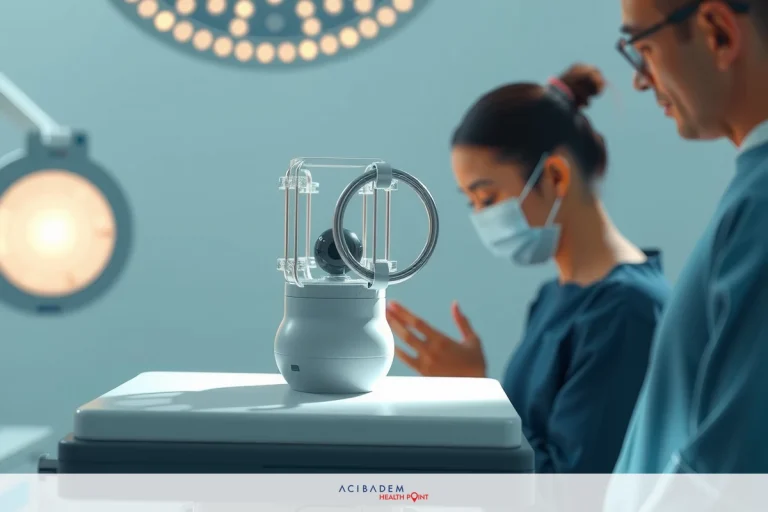How Do They Keep the Eye Stable During LASIK
How Do They Keep the Eye Stable During LASIK LASIK surgery, requires precision and stability. The eye’s natural inclination to move creates an intricate challenge for surgeons who must balance the need for patient comfort with ensuring successful outcomes.
The deployment of a suction ring offers one solution. Placed on the eye, it forms a stable platform necessary for laser treatment while simultaneously deterring movement during operation. Yet its use is only part of the story.
Another critical tool in maintaining eye stability is the fixation target light. By focusing their gaze on this light, patients can help keep their eyes steady throughout the procedure. Complementing these techniques are pre-operative relaxation strategies offered to patients, from controlled breathing exercises to guided visualization, all aimed at keeping them calm and still during surgery.
Using a Suction Ring
In LASIK surgery, eye stability is of utmost importance, and the suction ring becomes an invaluable tool in achieving this. The purpose behind its usage is twofold – not only does it create a stable platform for laser treatment but also serves as an effective deterrent to prevent any inadvertent eye movement during the procedure.
The process begins with careful placement of the suction ring on the patient’s cornea. Once positioned accurately, it forms a firm seal around the outer edge of the cornea. This action creates pressure that immobilizes eye motion thus ensuring stability, which is critical to successful surgery outcomes.
Despite playing such an essential role in maintaining eye stability during LASIK surgery, using a suction ring requires important expertise from ophthalmologists. It necessitates precision since accurate positioning directly impacts surgical success rates and overall patient comfort levels. In addition to this technical aspect, surgeons must also ensure patients are well-informed about each step involved in their treatment process so as they feel comfortable throughout their experience.
While being fundamental in keeping eyes steady during LASIK procedures, use of a suction ring further illuminates how advancements in surgical techniques have paved ways towards enhancing patient safety and comfort while undergoing vision correction surgeries. As continuous research fuels improvements within ophthalmology field innovations like these continue to redefine standards for medical practices worldwide.
Fixating Target Light
The role of a target light in LASIK surgery is to provide a point of focus for patients. This focal point serves as an anchor, helping the patient maintain eye stability throughout the operation. It’s like having a lighthouse guiding you through stormy seas; it’s there as your beacon when everything around seems turbulent.
LASIK surgeons guide their patients to concentrate on this target light during the procedure. This fixation aids in reducing eye movement and maintaining stability, thus enabling more precise corrections by the laser system. The application of such a simple yet effective technique showcases how surgical intricacies can be addressed using straightforward solutions that prioritize patient comfort.

It’s important to understand that while focusing on the target light does help maintain eye stability during LASIK surgery, it isn’t an isolated solution. Instead, it works hand-in-hand with other strategies such as use of suction rings or relaxation techniques suggested pre-surgery. The combined effect ensures optimal results from these vision correction procedures while maintaining maximum patient comfort levels.
These aspects gives us greater insight into not just how LASIK surgeries are performed but also about advancements within ophthalmology itself. Where even amidst highly technical procedures like laser surgeries—an element so rudimentary as ‘light’ has been creatively used to enhance outcomes and improve experiences for patients worldwide.
How Do They Keep the Eye Stable During LASIK: Patient Relaxation Techniques
Patient relaxation techniques are a fundamental component of LASIK surgery preparation. Ensuring that a patient is calm and relaxed not only enhances their comfort but also contributes to maintaining eye stability during the procedure. It’s akin to a musical performance, where the musician must be in sync with their instrument for a harmonious output; similarly, ensuring patient relaxation aligns them better with the surgical process.
These techniques take various forms and may include controlled breathing exercises or guided visualization. The underlying aim remains constant – reducing anxiety and promoting tranquility before going under the laser. For instance, deep breathing exercises can have an immediate calming effect on patients by inducing lower heart rates and promoting mental clarity—essential elements required during such intricate procedures like LASIK surgeries.
Some practitioners might suggest mindfulness practices or meditation as part of pre-operative preparations. These methods help develop greater self-awareness among patients about their bodies which further aids in mitigating unnecessary movements including those of eyes during operation. Ultimately these strategies work towards one singular goal: to ensure optimal eye stability throughout this vision correction procedure while prioritizing patient comfort above all else.
These relaxation techniques act as bridge connecting ophthalmologists’ technical expertise with patients’ emotional well-being. A testament to how modern medicine emphasizes holistic care over mere symptom treatment and reemphasizes role each individual plays in successful outcomes from medical interventions such as LASIK surgeries.
Frequently Asked Questions
How does the suction ring contribute to maintaining eye stability during LASIK surgery?
The suction ring is a device used in LASIK procedures to create a stable platform for administering laser treatment. More importantly, it helps prevent any involuntary eye movements during the procedure, thereby ensuring utmost accuracy and precision.
What role does the target light play in LASIK surgery?
The target light serves as a focal point for patients undergoing LASIK surgery. By fixating their gaze on this light, patients can maintain better eye stability throughout the procedure, similarly how focusing on one point can help balance while walking on a thin line.
Could you elaborate more about patient relaxation techniques before LASIK surgery?
Certainly! Patient relaxation techniques are employed prior to surgeries like LASIK with dual objectives - reducing anxiety levels and promoting stillness during operation. These may include guided visualization exercises or controlled breathing techniques that aid in calming nerves and ensuring minimal movement—including those of eyes—during the surgical process.
Does focusing solely on target light ensure complete eye stability during lasik surgery?
While focusing on the target light significantly aids in maintaining eye stability it's not an isolated solution. It works best when coupled with other strategies such as use of suction rings or pre-operative relaxation practices suggested by surgeons, all aimed towards achieving optimal results from these vision correction procedures.
How Do They Keep the Eye Stable During LASIK








